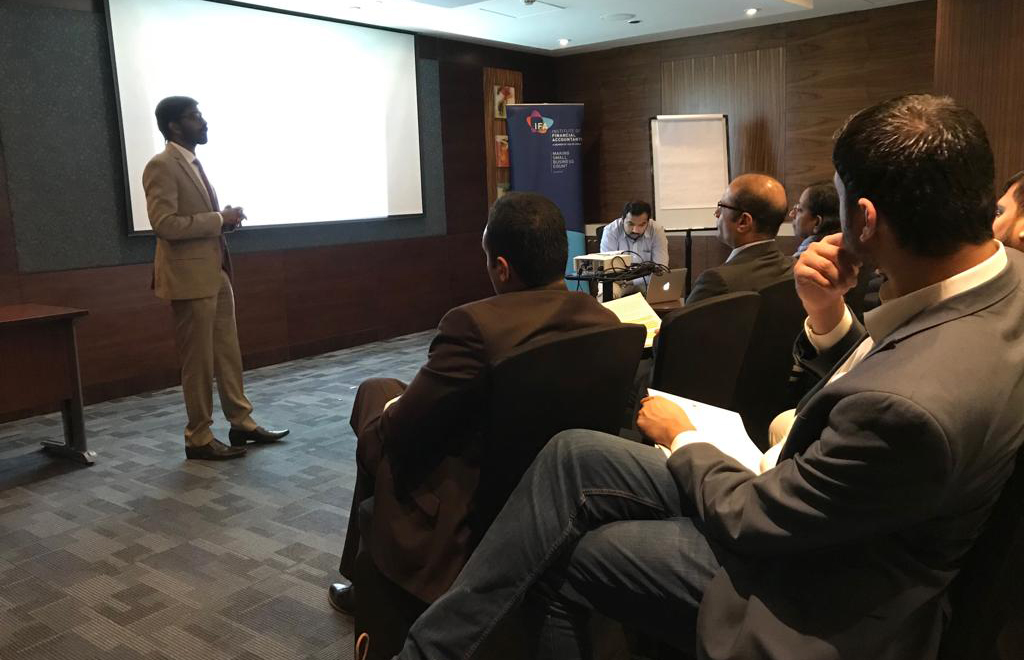Tax Services
KINGDOM OF SAUDI ARABIA AND UNITED ARAB EMIRATES DOUBLE TAX TREATY – OFFICIAL PUBLICATION
In its official gazette (Umm Al-Qura) the Kingdom of Saudi Arabia (KSA) on 1 March 2019 published its Double Tax Treaty (DTT) with the United Arab Emirates. This marks the first DTT among the Gulf Cooperation Council (GCC) countries. It is considered as the foundation for the accelerated cross-border trade between these two countries. The official notification on the UAE gazette for the treaty is still awaited which will ultimately set the DTT in force. The DTT will be effective on the first day of the second month in which UAE will issue the DTT in its official gazette.
The DTT was officially signed on 23 May 2018 between UAE & KSA. The DTT is in line with the Organization for Economic Co-operation and Development (OECD) Model Tax Convention. Both UAE and KSA resident individuals and companies will be subject to the provisions of the DTT.
Some important features of the treaty are as follows:
Permanent Establishment
The treaty follows the OECD definition for Permanent Establishment (PE) i.e. a fixed place of business through which the enterprise is engaged, in whole or in part.
Under the DTT, if services are carried out by an establishment of a Contracting State through employees in the other contracting state for a period of 183 days in a 12-month period, the establishment will be considered to have a PE in that other state.
Dividends: Dividends will be taxed in the source country, with a maximum 5% Withholding Tax rate (which is the current statutory Withholding Tax rate in KSA for dividends) if the recipient is resident of the other country.
Royalties: Royalties will be taxed at a maximum rate of 10% in the source country if the recipient is the resident of the other country. Which is a reduced rate (compared to 15% domestic rate of KSA).
Interest: KSA Withholding Tax on interest income will be exempt if the recipient is resident of another country, i.e. interest will be taxable in the source country (statutory rate of Withholding Tax on interest income in KSA is 5%).
Capital gains: Income derived by a resident of a Contracting State from immovable property situated in the other Contracting State will be taxed in that other country. Such that the income will be taxed in the country of origin. Disposal of shares will continue to be subject to KSA capital gains tax rate of 20% where appropriate.
Business Profits: The profits of an enterprise shall only be taxable in the source country unless the enterprise is carrying out business in the other Contracting State through PE. Accordingly, the income from services which are not delivered through PE in another country will be exempt from Withholding Tax in that country. The domestic Withholding Tax rates on business profits in KSA are between 5% and 20%.
If you wish to better understand the DTT and how it would affect your business or circumstances, Contact us at mail@affiniax.com
Download: Unofficial Translation of Double Tax Treaty – KSA and UAE
IMPLEMENTATION OF CBCR IN UAE
Preamble
United Arab Emirates committed to the implementation of ‘minimum standards’ to prevent Base Erosion Profit Shifting (BEPS) by joining OECD’s Inclusive Framework on BEPS on 16th May 2018.
Minimum Standards on BEPS & UAE’s progress
- Action 5: Countering Harmful Tax Practices More Effectively, Considering Transparency and Substance.
-
- UAE Progress: Application of a VAT system including setting up of a central administrative authority for taxation, i.e. Federal Tax Authority, has allowed UAE to make progress in this area.
- Action 6: Preventing the Granting of Treaty Benefits in Inappropriate Circumstances
- UAE Progress: UAE Signed Multilateral Convention (MLI) on June 27, 2018 to implement Tax treaty related measures to prevent BEPS. On May 29, 2019, the UAE deposited its instrument of ratification for the MLI to OECD.
- Action 13: Transfer Pricing Documentation and Country-by-Country Reporting (“CbCR”)
- UAE Progress: By implementing Cabinet Decision no. 32 on CBCR, in the month of July, the UAE has made significant progress in this area.
- Action 14: Making Dispute Resolution Mechanisms More Effective
- UAE’s approach remains to be seen.
Introduction of Country by Country Reporting in UAE
Implementation of Cabinet Decision no. 32 on County by Country Reporting is an important step for the implementation of Action 13 which is one of the four minimum standards. Through this resolution, the Ministry of Finance (MOF) has instructed Multinational companies, operating in the United Arab Emirates, to submit CBCR reports.
After Saudi Arabia and Qatar, UAE is the third country in the region to introduce CBCR in GCC. This step shall further enhance international confidence in the UAE’s financial sector.
Reporting Responsibility
The implementing regulation has specified responsibility of CBCR reporting or notification for the following entities as per the prescribed format and timelines:
- The Ultimate Parent Entity of a Multinational Group which is a UAE resident for Tax purposes
- The Constituent Entity of a Multinational Group which is Resident in UAE for Tax purposes
Reporting Threshold
A consolidated revenue of the Multinational Group, equal or above AED 3.15 Billion, is required to report under this regulation.
Mechanism
- If the threshold is met, then either the Ultimate Parent Entity or the Constituent Entity must submit a report to the Ministry of Finance in the specified format.
- The above threshold will be applied at the end of the Fiscal Year of the Multinational Group.
- The Ultimate Parent entity or its surrogate for Tax purposes will submit the CBC report within 1 year of the end of its Fiscal year.
- Where the Constituent Entity in UAE is not the Ultimate Parent Entity or the Surrogate Entity, it shall notify the Ministry, the identity and Tax Residence of the Reporting Entity. This notification must be done before the end of the fiscal year of assessment.
- The first reporting obligation has taken effect from January 1, 2019.
- The submission will be done considering the format and definitions specified by Chapter 5 of the OECD guidelines.
Penalties
| Violations | Penalty |
| Failure to retain documentation for 5 years from the year of reporting | AED 100,000 |
| Failure to provide specified information to the Ministry | AED 100,000 |
|
Failure to:
|
AED 1,000,000 plus AED 10,000 for each day of delay up to a maximum of AED 250,000 |
| Failure to accurately report information | AED 50,000 to AED 500,000 |
Affiniax at your service
We can:
- conduct a detailed study whether your business shall be assessed under this resolution by the Ministry;
- compile CBC report or Notification to the Ministry; and
- assess your compliance of the general requirements of the regulation.
Why Affiniax
‘Affiniax Partners’ has been providing Professional Advisory Services to its clients for over 25 years. We have a team of Specialists in the region who can assist you for the optimization of your Business Processes. For more information, please contact us at mail@affiniax.com
OBTAINING TAX RESIDENCY CERTIFICATE FOR A COMPANY
RECENT DEVELOPMENT IN UAE VAT LAW
One of our resident VAT experts, Sudarshan, speaks about the new guidelines and clarifications published by the FTA during the last few months at IFA Dubai Branch Meeting on December 22, 2018.
He highlighted the seriousness of proper tax compliance and recordkeeping requirement to avoid unnecessary penalties by the FTA.
VAT: IMPACT ON BUSINESSES IN BAHRAIN
- Impact on Revenue
- Procurement and Input Tax
- Contracts & Policies
- Record Keeping, IT & ERP Systems
- Compliances
- VAT impact assessments
- Advise on tax-efficient structuring/
- Drafting of Sample Tax Invoices & Tax Credit Notes
- Registering and filing VAT returns
BAHRAIN VAT: LARGE FIRMS TO REGISTER BEFORE JANUARY 1, 2019
VAT IN UNITED ARAB EMIRATES: PROFIT MARGIN SCHEME
- Second hand goods, meaning tangible moveable property that is suitable for further use as it is after repair;
- Antiques i.e. goods that are over 50 years old;
- Collectors’ items i.e. stamp, coins, currency and other pieces of scientific, historical or archaeological interest.
- Only those goods which have previously been subject to VAT before the supply in question may be subject to the profit margin scheme. As a result, used goods acquired prior to the implementation of VAT or goods which have not previously been subject to VAT for other reasons are not eligible to be sold under the Profit Margin Scheme. There needs to be sufficient evidence or information to justify that the good was subject to previously.
- The goods must have been purchased from either:
- A person who is not registered for VAT.
- A registered business which has already applied Profit Margin Scheme on the same goods.
- The taxable person made a supply of the goods where input tax was not recovered in accordance with Article 53 of Cabinet Decision No. 52 of 2017.
- Used goods acquired prior to the implementation of VAT or goods which have not previously been subject to VAT for other reasons are not eligible to be sold under the Profit Margin Scheme.
- Where a tax invoice or any other document mentioning an amount of VAT chargeable in respect of the supply has been issued.
- Sufficient evidence or information is not available to justify that the goods have been subject to VAT previously.
VAT IN UNITED ARAB EMIRATES: WHAT IS IT AND WHAT ARE THE IMPACTS?
Why is VAT being introduced?
The Ministry of Finance and the wider GCC have agreed to implement Value added tax (VAT) at a rate of 5% from 1 January 2018. This landmark Agreement marks the start of a fiscal reform across the region.
The increased need to diversify the economy, change operating models, and promote smart initiatives led by technology and employment continue to be key trends. In order to promote such change and create an economy that is safeguarded for the future, governments across the region have introduced various initiatives to reduce the dependency on oil-generated incomes and further stabilize the economy, one of which being the introduction of VAT in Dubai, Abu Dhabi and all of the Emirates.
How will VAT impact your business in UAE?
VAT in the UAE is likely to impact various segments of your business; therefore, it is advisable to conduct a VAT mapping programme of your current procedures and processes in order to identify the VAT transformation required.
Depending on the size and complexity of your business and operations, VAT readiness can take from three months to a year, with an impact being felt across multiple touch points of your business, which include some, if not all, of the functions such as:
- Finance, Purchasing, Sourcing, and Imports
- Sales and Marketing; Logistics and Customs
- Legal and Human Resources; IT Department for Systems and ERP
Standard Rate: 5% to be applied to most goods/services supplied by ‘Chargeable Persons’
Zero Rate: Zero VAT (0%) applied to limited goods and services.
Exempt Supplies: Supplies outside the scope of VAT. Input VAT will not be recoverable.
Who is required to register for VAT in UAE?
Mandatory registration will be required for ‘Chargeable Persons’ (individuals, companies, groups, etc.) making ‘Taxable Supplies’ of AED 375,000 (generally calculated over a 12-month period). The voluntary registration threshold will be AED 187,500.
Points to Consider
- VAT Returns: Most Chargeable Persons will need to file quarterly returns. The deadline for VAT returns will be a month from the end of the quarter. Some entities may need to file monthly returns.
- Transitional Rules: Transitional rules will apply on stock / WIP as of 31 December 2017. Contracts that cross over the date of implementation of VAT will be affected.
- Tax Audits: FTA has been given rights to undertake a Tax Audit on any person to ascertain the extent of compliance with the provisions of the LAW.
What if you decide not to change anything?
If nothing is done, there is a serious risk that your current business methodology will not be compliant with the new legislation. Furthermore, you might not be able to submit a complete and accurate VAT return in a timely manner. Non-compliance could lead to penalties or prosecution, whichever applies.
BAHRAIN VAT: IN COMPARISON
The government of Bahrain has announced the implementation of VAT from 1st January 2019. An Arabic version of the VAT law has been published. Implementing regulations will be released at a later date which will explain the VAT matters in further detail.
Some of the important points and differences to UAE and KSA VAT legislation are as follows:
1. Mandatory Registration – Threshold
The Bahraini legislation refers to the GCC agreement for the mandatory registration threshold which stipulates Saudi Riyal 375,000 as the basis of calculation. The Bahraini legislation has not clarified which rate of exchange rate will be used to determine the final value of threshold. Threshold value is likely to be 37,500 if we look at the example of UAE threshold which is not exactly equivalent to the exchange rate pertaining to, for example, 01 January, 2018. UAE used a rounded off exchange rate of 1AED/SAR to calculate its threshold. Bahrain is likely to use a round off figure of 10 BHD/SAR, hence, BHD 37,500 as the threshold.
2. Mandatory Registration – Period
Another important distinction when compared to KSA and UAE legislation would be the period of revenue considered for mandatory registration. KSA and UAE consider last 12 months and next 30 days of revenue for the purpose mandatory registration. In contract Bahrain considers last 12 months OR “anticipated revenue” in the next 12 months. Companies may have to provide signed contracts to establish future revenue.
3. Voluntary Registration – Threshold and Period
Similar to UAE and KSA the voluntary threshold will be half of the mandatory threshold and both revenues and expenses can be considered for this purpose. But similar to the distinction in the period, previous OR next 12 months of revenue and expenses can be considered for the registration.
4. Tax Return Submission Date
It will be the last day of the month subsequent to the tax period. For example, for Quarter Ended 31st March, 2019 the last date of submission would be 30th April, 2019. This is similar to KSA.
5. Tax Debit Notes
The document titled “Tax Debit Note” is officially recognized when compared to KSA and UAE where only additional invoices can be issued for any increase in the value of a Tax Sales Invoice. For instance, in UAE and KSA, if by error or omission a Tax Invoice was undervalued, you need to issue an additional Tax Invoice describing the change. Bahraini Legislation recognizes a Tax Debit Note which can be officially issued to rectify such an error, instead of an additional tax Invoice.
6. Pre-registration Expenses
In Bahrain, with regards to sale of taxable goods, only those Input VAT credits can be claimed where the respective taxable goods would be sold after the registration date. In terms of taxable services, no Input credits can be claimed prior to 6 months of registration date. This is similar to KSA.
The distinction in UAE is with respect to the input credits on services only. Input Credits can be claimed as long back as 5 years prior to registration, provided that these services were used to make taxable services.
7. Education Services and related goods/services
In Bahrain these are Zero rated supplies. The legislation has not restricted this provision to government institutes only, whether higher education or not. The implementing regulation is likely to further elaborate on this topic specially “related goods/services”, and whether transportation, uniform, educational aids etc. would come under the zero rate or not.
In UAE, Higher education is chargeable at 5% VAT where it is a private institute. Otherwise public and private education and related goods and services are zero rated with the exception of uniforms, school trips, food items, electronic devices etc.
In contrast in KSA, all education services and related goods/services are subject to VAT at 5%. Though, the VAT payable by KSA citizens on educations services and related goods/services will be borne by the KSA government.
8. Enforcement
In Bahrain, the enforcement of VAT legislation will be done through an existing pool of judicial officers and public enforcement officials. So we may expect more inspections and enquiries when compared to KSA and UAE, where new departments are formed for enforcement which would need sufficient time to hire, train and start their inspections.
9. Failure to submit VAT return in time
The time stipulated in Bahrain before a penalty is levied is 60 days, when a minimum of 5% to a maximum of 25% penalty, on the amount of tax, can be levied. In contrast UAE, and KSA apply penalty immediately after the due date is over which is 28 days and last day, of the subsequent month, respectively.
10. Prosecution
In Bahraini legislation there is much more emphasis on criminal charges to be levied upon the violations of the law, when compared to UAE and KSA where financial fines are largely emphasized and higher in value.








